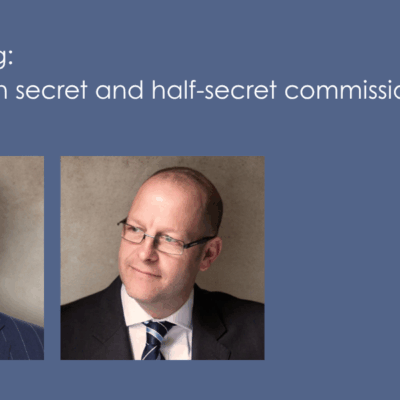Price & Oths -v- Flitcraft Limited & Oths [2020] EWCA Civ 850
This was an appeal from a decision of Recorder Douglas Campbell QC, sitting as a deputy High Court Judge, to grant summary judgment against the first, second and fourth defendants on issues of patent infringement and copyright infringement [2019] EWHC 1965 (Pat). Issues relating to passing off and the liability of the third defendant as a joint tortfeasor were to go to trial. The key issue between the parties was title to the relevant rights. The defendants said they owned the title to patents and copyrights through a series of assignments or, at the very least, the claimants did not have title and therefore did not have standing. In giving summary judgment, the Recorder found that the defendants had no real prospect of establishing their case on title.
The main issue on the appeal was whether the appellants had a real prospect of establishing ownership to the relevant rights or otherwise impugning the claimants’ title. In a judgment given by Floyd LJ (with whom Patten and David Richards LJJ agreed), the Court of Appeal allowed the appeal, after new evidence was admitted and the defendants applied to amend their defence.
Given the fact-sensitive nature of the parties’ case on the chain of title and given test applied in summary judgment cases, the main body of the judgment does not establish any new principle.
However, at paragraphs [85-87], Floyd LJ felt moved to deal with a ground of appeal that he did not have to deal with, given the appeal was allowed on new evidence. The ground was that there was a serious procedural impropriety in the court below.
The claimants’ application was for “An order in the form attached…for directions and summary judgment on the whole or part of the claim”. In box 10 of the application notice, the claimants did not rely on a witness statement or even their statements of case. A paragraph appeared in the box, which said of the summary judgment application, “The evidence in respect of the part of the application concerning summary judgment will be filed shortly”. No further evidence was filed.
The failure to file evidence (despite saying that they would) was only one of the claimants’ failures to comply with the mandatory provisions of Part 24. In addition, the claimants failed to identify any point of law or provision in any document upon which they relied and failed to state their grounds for summary judgment (or even that they believed the grounds for summary judgment were met).
The defendants, not knowing what case they had to meet, did not file any evidence themselves. The specifics of the grounds for summary judgment were not known to the defendants until the claimants’ counsel’s skeleton was provided.
The defendants’ case below was that the summary judgment application should be dismissed for the wholesale failure to comply with the rules. Alternatively, if the judge heard the application and he found in principle for the claimants, there should be an adjournment to allow the defendants to put in evidence on those points, given they had not been fairly notified of them.
Nevertheless, the Recorder granted summary judgment, largely on the basis of a lack of documentation in support of the defendants’ defence before the court.
The approach taken by the Recorder to the claimants’ failure to comply with the rules was criticised by the Court of Appeal. The applicable principles in respect of the procedural requirement of Part 24 appear at paragraphs [39-43] and the application of them at [85-87]. The following principles can be drawn from the judgement:
- The procedural safeguards in Part 24 and the practice direction are not mere “formalities”, but points of critical importance to ensure a fair hearing of the application.
- The requirement to state that the applicant believes that on the evidence the respondent has no real prospect of successfully defending the claim is an important one which is to prevent a claimant making an application and claiming the case to be straightforward when, in truth, he knows otherwise.
- If an application for summary judgment is made without fairly notifying the respondent of the grounds, criticism of the respondent’s failure to deal with those grounds in evidence is unlikely to be justified.
This writer* thought those principles were obvious given the wording of Part 24 and the requirements of fairness and justice. Floyd LJ’s reinforcement of the importance of the mandatory procedural requirements is to be welcomed. A litigant should not gain an advantage from his own breach of the rules. Mandatory procedural requirements are exactly that.
* Fair disclosure – the writer appeared below and drafted the original grounds of appeal upon which permission was granted, before the application to rely on further evidence was made.




![Delivery matters: Gaster v. HMRC [2025] EWHC 328](https://threestone.law/wp-content/uploads/2024/01/Hallett_Katherine-400x400.jpg)
